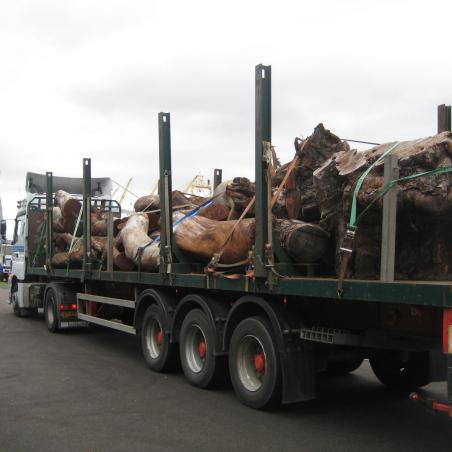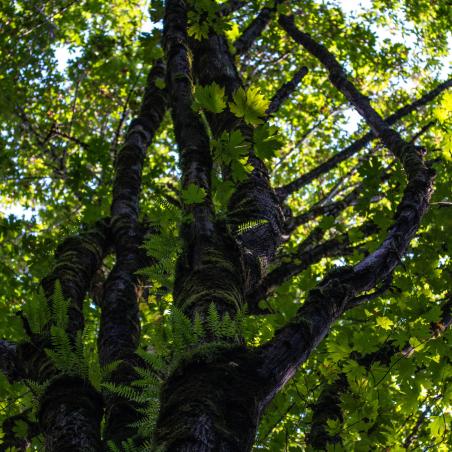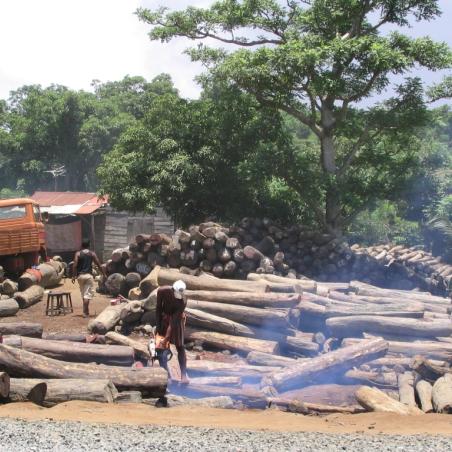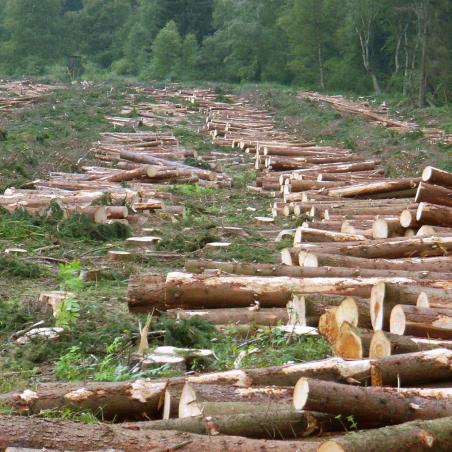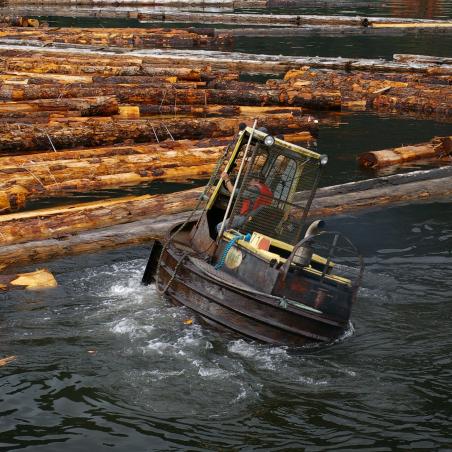News & Blogs
10/14/2015
$13 Million Fine For Lumber Liquidators Shows U.S. Lacey Act‘s Clout
Type:
Blog Post
On October 7, Lumber Liquidators agreed to plead guilty to several violations of the Lacey Act, among other charges. The largest hardwood flooring retailer in the United States will have to pay a combined $13.2 million for importing illegally harvested timber from areas including forests in far eastern Russia and other compliance issues.
09/08/2015
4 Cutting-Edge Technologies to Catch Illegal Loggers
Type:
Blog Post
Illegal logging and trade in illegal wood is often hard to detect. Illicit loggers and traders will cut legally protected trees at night or in remote areas, disguise or mislabel wood, falsify documents, or work with corrupt law enforcement officers and smugglers in timber markets. Despite recent advances in laws to crack down on illegally sourced wood, for law enforcement agencies with limited resources and companies with complex, global supply chains, identifying illicit activity can be like trying to catch a shadow.
09/02/2015
South Africa Hosts World Forestry Congress: 4 Big Opportunities for Progress
Type:
Blog Post
More than 1,700 leaders from governments, civil society, business and academia will gather next week in Durban, South Africa for the 14th World Forestry Congress (WFC). Hosted by the UN’s Food and Agriculture Organization (FAO) just once every six years, the Congress is considered the most prominent gathering for discussions about challenges and opportunities facing the world’s forests.
08/21/2015
Northwest Lumber Mill First to Be Indicted on US Domestic Lacey Act Charges
Type:
Blog Post
A wood buyer from Washington State and his lumber mill, J&L Tonewoods, were indicted last week on charges of purchasing illegally harvested big leaf maples from the Gifford Pinchot National Forest in violation of the Lacey Act. The act bans illegal wildlife and timber trafficking, and the seven counts of the indictment are the first alleging violations within the United States. J&L Tonewoods processes and supplies big leaf maple for the custom musical instrument industry
08/18/2015
Beyond Cecil the Lion: How the Lacey Act Protects Wildlife and Plants around the World
Type:
Blog Post
The killing of Zimbabwe’s iconic Cecil the lion has sparked media attention and outrage around the world. Zimbabwean officials and the public are calling for the extradition of Walter Palmer, the U.S. game hunter who reportedly paid $50,000 to guides who lured the animal out of its sanctuary and onto private land, where the lion was killed and its skin and head were removed.
07/08/2015
Brazilian police and scientists team up to crack down on illegal timber trade
Type:
Blog Post
Seven years ago, Brazil’s São Paulo State Environmental Police set out to crack down on the illegal timber trade. In 2011, during one of their most ambitious inspection operations, officers inspected nearly 350 trucks and more than 60 lumberyards in just two days. Discovering an array of violations, they responded by delivering 50 violation notices and issuing BRL $2.2 million (USD $1.4 million) in fines.
05/29/2015
Mapping Illegal Forest Clearings in the Brazilian Amazon
Type:
Blog Post
The Instituto Centro de Vida (Life Center Institute - ICV) recently released a report mapping illegal forest clearings in the Brazilian state of Mato Grosso. The analysis was part of a Global Forest Watch Small Grants Fund project to assess the legality of timber extraction by comparing tree cover loss vis-à-vis authorized forest management operations, indigenous territories and protected areas between August 2012 and July 2013.
03/27/2014
4 Actions Companies Can Take to Source Legal Wood
Type:
Blog Post
Illegal logging drives deforestation in many countries, robbing national governments and local communities of valuable income and contributing to global biodiversity loss and climate change. Experts estimate that up to 10 percent—or about $7 billion—of the global wood supply is sourced illegally—meaning that the wood was harvested in violation of national laws or international agreements to which a country is party to.
10/30/2013
Lumber Liquidators Raid Shows Companies Need to Heed U.S. Lacey Act
Type:
Blog Post
U.S. federal authorities recently executed search warrants at two Virginia facilities belonging to Lumber Liquidators Holdings, Inc., the largest specialty retailer of hardwood flooring in the United States. Lumber Liquidators said in a press release last month that the raids were related “to the importation of certain of the Company’s wood flooring products,” but did not explain further.
09/23/2013
Leveling the Playing Field for Legal Timber in Brazil
Type:
Blog Post
Brazil is one of the most biologically diverse countries in the world. What is less known is that the country is the fourth largest industrial roundwood (timber left as logs, not sawn into planks) and wood pulp producer and ninth largest paper producer in the world.

